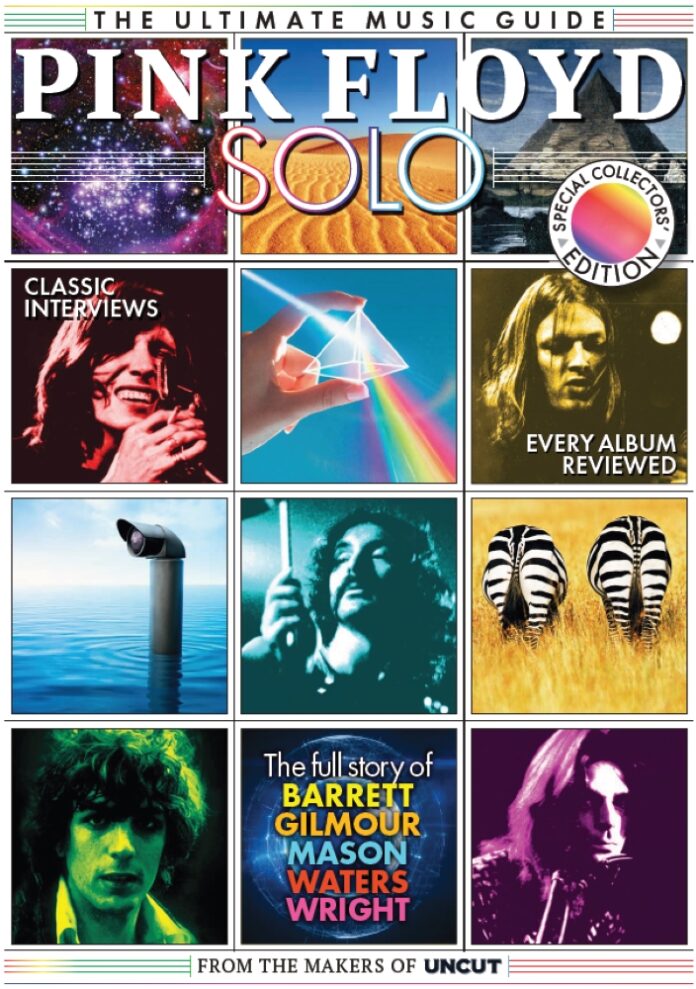The solo works of Syd, David, Roger, Rick and Nick
The solo works of Syd, David, Roger, Rick and Nick
While it began life like a thrilling and improvised space craft, by the time of its most commercially successful work, Pink Floyd was more like a corporation or a rebranded utility company. A highly-organized business with a streamlined visual message, not to mention a phenomenally high turnover.
As you’ll read in this new magazine, what this initially meant for the artistic aspirations of the individual members of Pink Floyd told you a lot about the impulse to create. For David Gilmour, Richard Wright and Nick Mason solo work clearly began as a release: a break from the responsibilities of the day job. Even Roger Waters, who released a weirdly playful and experimental documentary soundtrack called The Body with Ron Geesin in 1970, seems to have enjoyed himself occasionally.
When Roger Waters quit Pink Floyd in 1983, however, something changed – and solo music which had previously been a pleasing distraction assumed a far more competitive edge. For Waters, the ongoing existence of a Pink Floyd without him stung him into action: if you were in any doubt about his key contributions to the Pink Floyd albums The Wall and The Dark Side Of The Moon then the many renderings of the material in his solo catalogue should put you straight.
The solo music that you’ll find covered in this new magazine is important on one level as an inverse history of Pink Floyd. But there are other reckonings going on within it. For Roger Waters it has become a political/personal platform. For David Gilmour meanwhile, it has been a place to articulate himself at his own leisurely pace, and share his thoughts on the consolations of love and family. Richard Wright doesn’t have a large catalogue of work, and seems to have ultimately been rather hard done by the Pink Floyd experience. He may even, as Waters suggests in one of the interviews here, have recorded work which he never released – perhaps so that the music wouldn’t become sullied by commerce.
The most important solo career here, though is the one which flowered most briefly: that of Syd Barrett. The music on his two solo albums is abstract, playful, and sometimes barely there, testament to a personality and mental health which wasn’t built to thrive within the demands of the pop business. As we know, Pink Floyd might have kicked out Syd Barrett, but that didn’t mean Syd would ever leave Pink Floyd: his departure gave them a problem to solve, and as they came to realise, a subject to try and solve it with.
David Gilmour is on tour now, as Roger Waters often is. It is, though, probably Nick Mason’s work with Saucerful Of Secrets which these days best represents for the soul of Pink Floyd. Nick himself says his revisiting of early Floyd material has a “pleasing circularity” – which it certainly does. You might also say it takes the listener somewhere otherworldly again: an interstellar overdrive, on course for more innocent times.
Enjoy the magazine. It’s out Friday, but you can pre-order one here.



